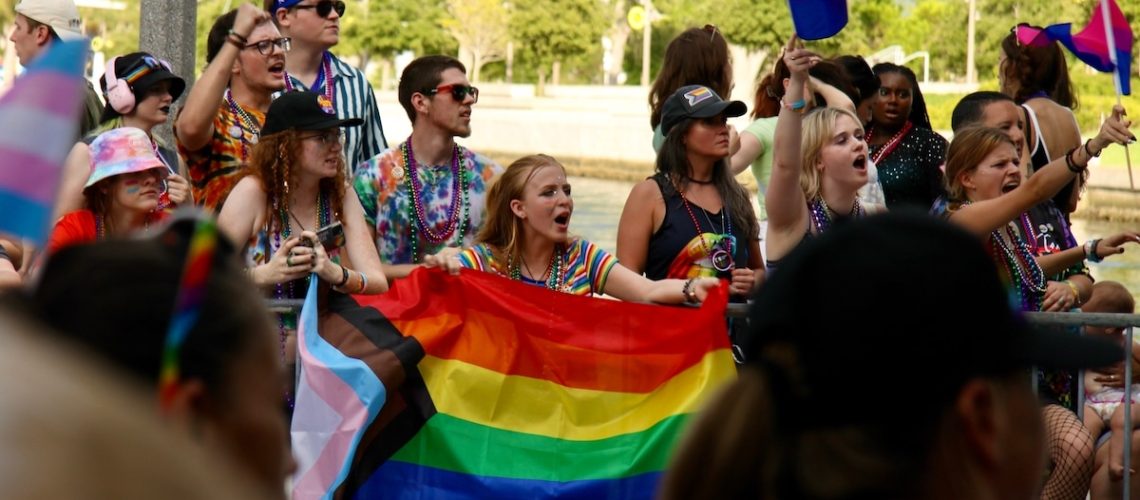As LGBTQ+ rights in the U.S. continue to evolve, conservative-leaning or “red” states have increasingly become battlegrounds where both progress and pushback are experienced daily. These states, many of which hold deeply rooted conservative values, present unique challenges for LGBTQ+ individuals and activists fighting for equality. Despite significant progress nationwide, the situation for many LGBTQ+ people living in these regions remains precarious, with new legislation, social pressures, and discriminatory policies creating an atmosphere of uncertainty.
Legislative Challenges
In recent years, many red states have seen a surge in legislation targeting the LGBTQ+ community, particularly transgender individuals. In 2023 alone, over 550 anti-LGBTQ+ bills were introduced across the United States, with a notable concentration in conservative states like Texas, Florida, and Tennessee. These bills include restrictions on gender-affirming healthcare for minors, bans on transgender students participating in sports teams that align with their gender identity, and even limits on discussing LGBTQ+ topics in classrooms.
One example is Tennessee, which in early 2024 passed a law banning drag shows in public spaces where minors could be present, a move that LGBTQ+ advocates saw as part of a broader attack on LGBTQ+ culture. The law has faced significant opposition from activists who argue that it is rooted in bigotry and misunderstanding, with legal challenges currently underway.
In Texas, restrictions on gender-affirming care for transgender minors have created a life-altering impact. The law prohibits medical professionals from providing treatments such as puberty blockers or hormone therapy to individuals under 18. Many families have been forced to leave the state to seek necessary care for their children. Activists on the ground continue to fight these legal battles, but the landscape remains difficult.
The Role of Grassroots Activism
Despite the challenges posed by legislation, grassroots activism has become a powerful force in red states. LGBTQ+ organizations, often working in hostile environments, have focused on community-building, legal challenges, and public education campaigns.
Groups like Equality Texas and Tennessee Equality Project have mobilized communities to protest discriminatory laws and provide support for affected individuals. In Texas, Equality Texas has launched campaigns to protect the rights of transgender youth and is working to change public perceptions through education and advocacy.
Individual Stories from the Frontlines
Many LGBTQ+ individuals living in red states continue to face significant personal challenges, but their stories also highlight resilience and hope. Rachel Gonzalez, a mother in Texas, became an outspoken advocate after the state’s transgender youth healthcare restrictions impacted her daughter, who was undergoing hormone therapy. Gonzalez has been actively working with LGBTQ+ rights groups to challenge the legislation, sharing her family’s story to shed light on the human cost of such laws.
In Florida, LGBTQ+ teacher Liam O’Connell faced mounting pressure after the state’s “Don’t Say Gay” law restricted educators from discussing sexual orientation and gender identity in schools. Despite the risks, O’Connell has continued to advocate for LGBTQ+ students, offering a safe space for them to share their experiences and seek guidance in navigating increasingly hostile school environments.
Hope on the Horizon
Though the fight for LGBTQ+ equality in red states remains difficult, there are glimmers of hope. Legal challenges to anti-LGBTQ+ laws have found some success in courts. In July 2024, a federal judge temporarily blocked parts of Arkansas’ ban on gender-affirming healthcare, allowing transgender youth to continue receiving care while the case is litigated. These legal victories, though small, are significant steps in a broader struggle for LGBTQ+ rights in conservative regions.
The growing visibility of LGBTQ+ voices, particularly from within these red states, is also contributing to a slow but noticeable cultural shift. Younger generations in these regions tend to be more accepting of LGBTQ+ individuals, which may ultimately influence future legislation and societal norms.
This post first appeared on Pulse of Pride.
Feature photo credit: Shutterstock/ Anastasiia Shadrina

